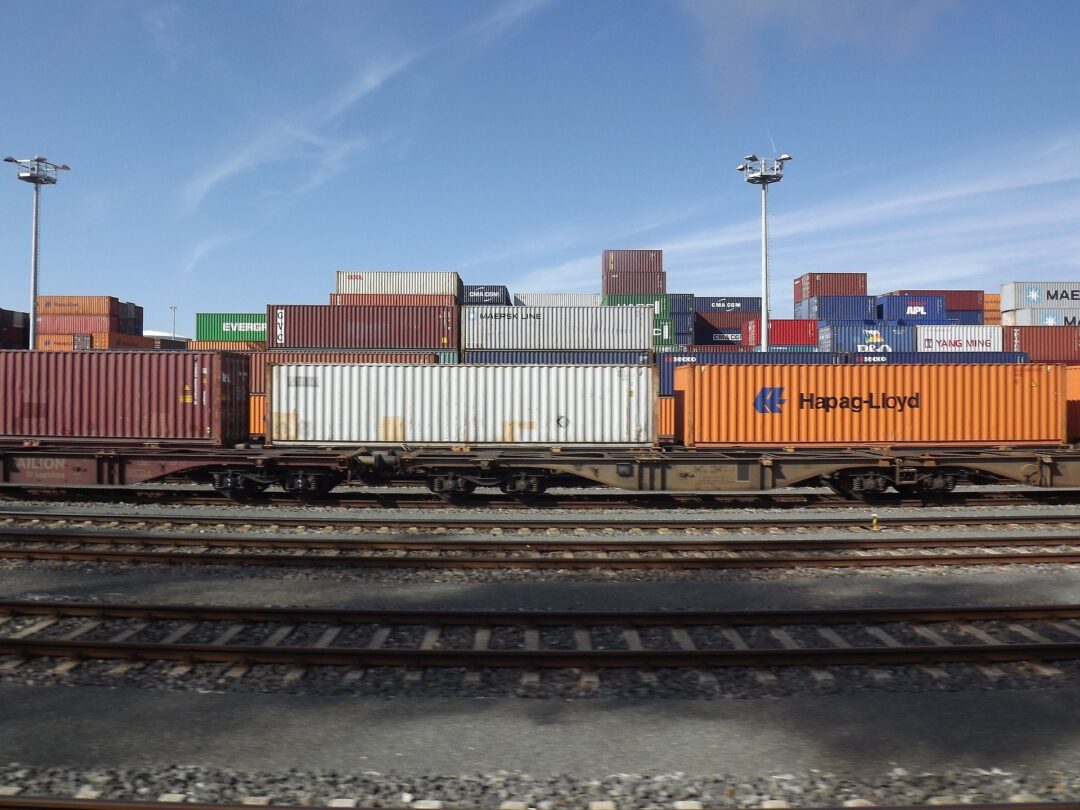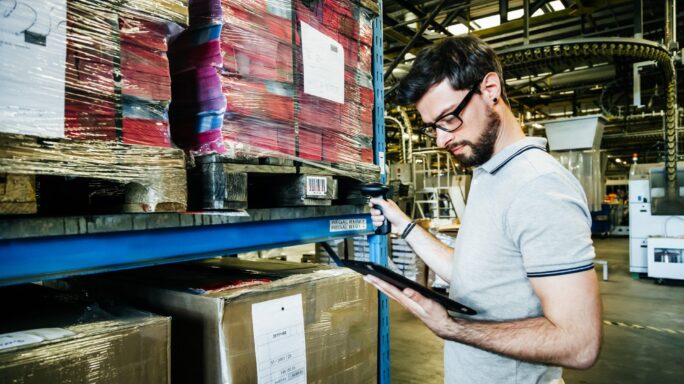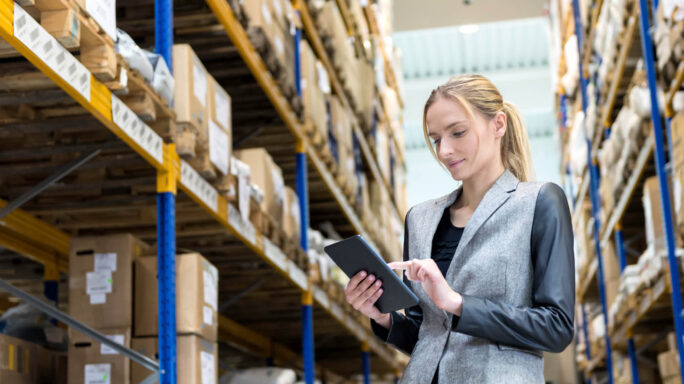Strategy, Legal & Operations
What is a customs broker and how much will it cost to use one?
Discover what a customs broker is and find out how and why you would need to use one when dealing with international trade.

We’re approaching the end of the Brexit process, with the transition period ending on 31 December 2020.
After that point, there will be a customs border between Great Britain (England, Wales and Scotland) and European Union (EU) countries.
Northern Ireland will continue to trade with the Republic of Ireland and the EU as part of the EU customs and VAT systems, but will also be able to move goods freely between other countries in the UK.
However, companies in Great Britain that export goods to businesses in the EU will have to examine their processes. A customs broker may need to be part of that.
Customs paperwork and customs payments will be required when exporting to EU countries, just like when exporting to any non-EU country prior to Brexit. Businesses might need an understanding of how customs and VAT work in the countries they export to, or import from.
The simplified declaration procedure can be used for some kinds of exported goods. This means you don’t need to provide as much information as a full declaration up front, and can instead use a pre-shipment advice declaration.
However, even this is likely to be very complicated for many businesses. Official government advice suggests that businesses hire customs intermediaries, such as freight forwarders or customs brokers to help with this.
We’ve discussed freight forwarding on Sage Advice, which provides a good background on the issues involved. We’ve also examined customs and export following Brexit.
In this article, we take a look at how customs brokers can serve your business following Brexit. And Jim Limerick, managing director of 1st Move International, who has been working in the customs industry on behalf of clients for more than 40 years, shares his advice.
What is a customs broker?
“A customs broker will check the all-important classification and get you the right commodity code,” says Limerick. “Every product on the planet has a unique individual code.
“Back in the 1970s and 1980s, it used to be a set of huge volumes of books that you would have to flip through. It’s all done electronically now. It’s a bit easier.”
The commodity code is then used to prepare the customs documentation but often that’s not all that’s required.
“Some products might need an import licence,” says Limerick. “They might be hazardous goods, or restricted. This is where the customs broker again comes in useful because they will know exactly what documentation is required.”
The customs broker is electronically registered with customs, speeding up communications, and they will know the timescales required to anticipate problems.
“We have a CRN number with customs,” adds Limerick. “We can electronically file import and export documentation. This can be done in advance of a shipment, either leaving the country or before it comes in.
“It gives you a bit of time because customs might come back with a different classification that carries a higher duty.”
Customs brokers can also help with making payments, adds Limerick. While it’s possible for businesses to have a duty deferment account of their own, they can use that of their customs intermediary.
“If you’re a regular importer and frequently have to pay duty, taxes or VAT on commodities, the customs broker or their freight agent will often have a duty deferment or a VAT deferment account,” says Limerick.
“This means you don’t have to pay the duty or VAT immediately. You would pay that once a month. The goods are then able to get through the port quickly.”
Getting customs documentation wrong can mean goods are held up, or even confiscated.
“If there’s ever going to be a delay, it will be with customs,” adds Limerick.
Delays can mean not only increased costs for you in terms of lost revenue and storage fees, but also for your freight company, who might find one of their HGVs is not available for the next job – and who will then pass the cost on to you.
“Customs brokers are headache avoiders,” says Limerick. “That is exactly what a customs broker offers. Customs brokers take away the pain at the port of entry.”
Customs brokers: Local vs international
It’s best to go local with customs brokers, continues Limerick.
He says: “If you’re exporting something out of Felixstowe and you’re looking for a customs broker to clear your goods, then the best one to use would be a customs broker in Felixstowe.
“He will know who the local customs guys are. The customs officer will have him on speed dial. He will know who he is and he will know that the broker is making a call to smooth a transition of a problem.”
The destination is important too.
Another benefit of using a customs broker is that they will advise about processing the goods once they reach their destination, and often this means making use of a trusted customs broker there.
Limerick provides the example of a car export he undertook for an auction in the US. Part of this involved employing a local customs broker in addition to his own services.
He says: “It was unusual because the car wasn’t being sold. It was being putting it into auction. You couldn’t determine a value because it hadn’t been sold. So, I’ve now got a Texas customs officer scratching his head.
“As it happens, the auctioneer had a bond. An estimated value was put on the vehicle. That meant it cleared customs. We handled all this before the vehicle even arrived.
“But if we hadn’t used the right customs broker in Texas to figure things out, the car would have missed its auction.”
How to choose a customs broker and how much they cost
While some countries license customs brokers, there is no such requirement in the UK.
To find a customs broker, Limerick suggests searching on Google, although the UK government’s Institute of Export & International Trade website also has a Register of Customs Brokers.
“Ask your shortlist a couple of pertinent questions,” he says. “For example, ask them what the customs code is for what you’re export or importing.
“Within a very short space of time, that customs broker should be able to tell you what that customs code is, what that duty is for the particular country you’re shipping it to or what the import duty is for that in the UK.
“It’s a very simple question that would weed out the wheat from the chaff.”
The risk of being scammed are slight, he suggests.
“Customs brokering is not a business you would enter into lightly,” says Limerick. “Customs brokers take on a huge responsibility for not a lot of money.”
And that raises a vital question: how much does it cost to hire a customs broker?
Limerick suggests £45 for the services of his own firm, but there may be charges for things such as customs clearance charges ranging up to several hundred pounds, which are paid directly to customs in that country.
The government has suggested that, post-Brexit, businesses might incur costs of around £32.50 per customs entry. Notably, controlled or excise goods may have additional charges, as might foodstuffs and textiles.
Editor’s note: This article was first published in December 2019 and has been updated for relevance.
Business after Brexit
Need help doing business post-Brexit? Get this free guide and discover what you need to know and do now.







Dear Sir or Madam,
I am a small business, requiring assistance in paperwork costs, in clearance for importing goods into the uk from the EU.
I mainly deal in mid century furniture1950 – 1960’s used, used designer lighting also various antiques all descriptions.
I refurbish and resell in the uk. All goods purchased are usually in need of refurbishment.
I usually do two or three trips per month.
I have an eori number, have a very basic idea tariff codes, but that’s it.
I drive a 3.5t van, drive through europe filled with approx 1000kg of goods around 50 to 100 items per trip, costing around 4000 euros.
I keep receipts notes etc of all these purchases.
I will be leaving and entering the port of Dover / Euro tunnel.
Can you help me at all, I need assistance on how to import these goods into the uk.
Kind Regards
Michael Rhodes